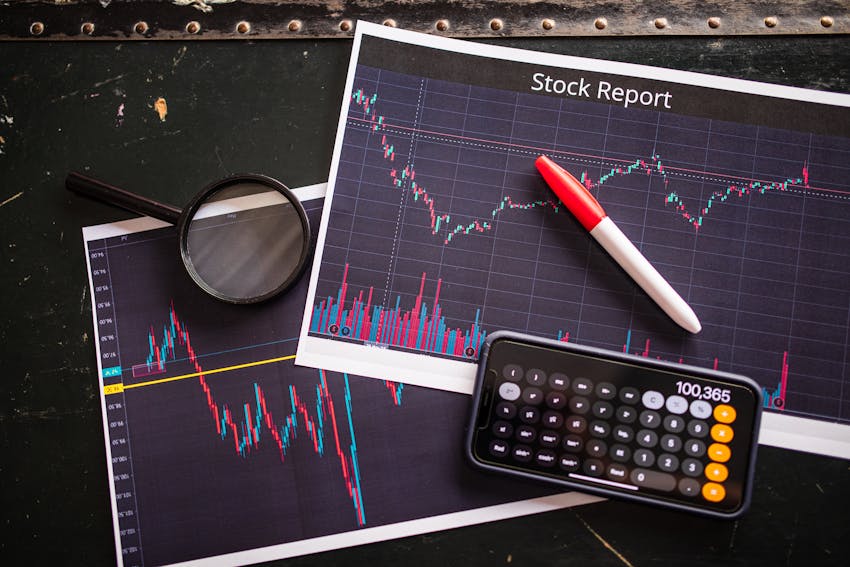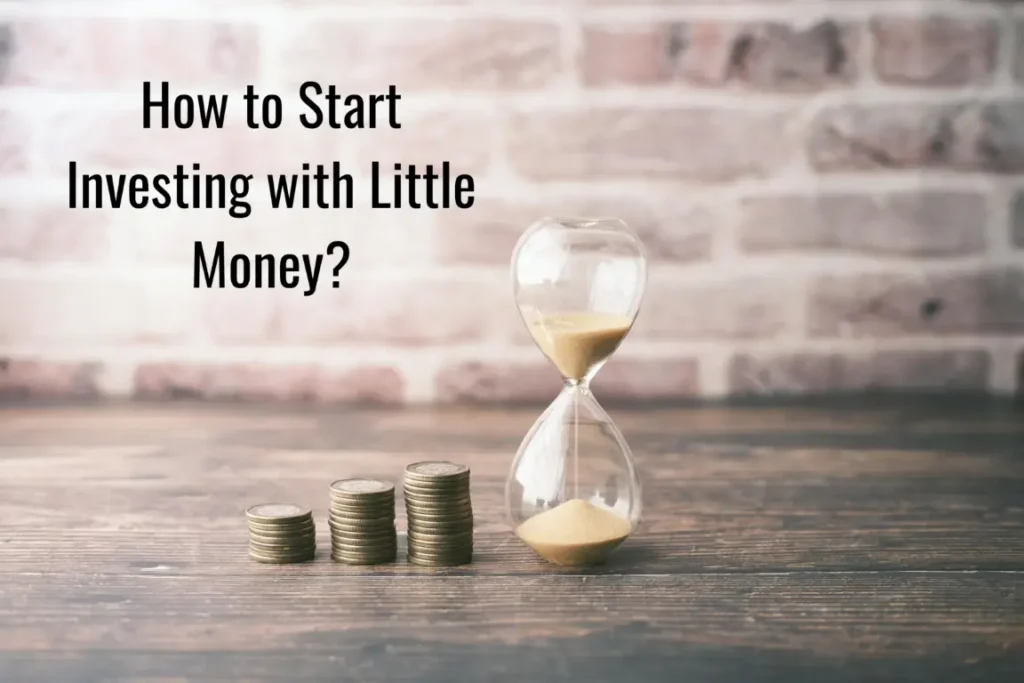Want to start investing in the stock market, but worry you don’t have enough money? The good news is you don’t need thousands to begin.
Don’t assume that the stock market is only for people with deep pockets. Fortunately, that’s not the case anymore.
Thanks to modern finance platforms, robo-advisors, and tax-efficient accounts like the Stocks & Shares ISA, you can start investing with as little as £1 or £25 a month.
In this guide, you will get financial advice on how to begin investing in the stock market with little money in the UK, step by step. By the end, you’ll know exactly how to get started, which options make sense for beginners, and the common mistakes to avoid.
Can You Really Invest with Little Money?
Yes!
And it’s easier than ever.
In the past, investing was mainly for wealthy people because brokers required large minimum deposits. Today, most online platforms let you start small. For example:
- Fractional shares make investing affordable. Instead of paying £200 for a single share, you can own a piece of it for as little as £10.
- You can set up monthly direct debits into funds or ETFs from as little as £25.
- Robo-advisors make it possible to invest tiny bits of money automatically.
The real power isn’t in starting with a big sum, but in starting early and investing regularly. Over time, the money compounds, and your wealth graph goes up. Your investments earn returns on both the money you put in and the profits you have earned.
Setting Clear Goals Before You Invest
Before you start, ask yourself: What am I investing for?
- Short-term goals (1–5 years): saving for a house deposit, wedding, or emergency fund. In this case, the stock market may be too risky, and cash savings might be better.
- Long-term goals (5+ years): retirement, children’s education, or building wealth. The stock market is ideal for these because it has historically grown over time despite short-term ups and downs.
Also, think about your risk tolerance. Are you comfortable seeing your investments go down temporarily, knowing they could recover in the long term? If yes, stocks and funds are for you. If not, a balanced mix with bonds may suit you better.

Choosing the Right Account to Start With
Before you can buy your first stock, you’ll need an investing account. Here are the main options:
- General Investment Account (GIA)
It is the standard brokerage account. There’s no annual limit, but gains and dividends are taxable once you go over allowances.
- Stocks & Shares ISA
ISA Stocks and shares are the best and most popular choice for beginners. You can invest up to £20,000 per year, and all your gains, dividends, and interest are tax-free. It also works great for long-term goals.
- Personal Pension
This kind of investment is ideal when you are building wealth for your retirement. With a self-invested personal pension (SIPP), you get tax relief on contributions, but the money is locked until you’re at least 55 (rising to 57 in 2028).
Simply put, a Stocks & Shares ISA is the best starting point for most beginners because it keeps things simple and tax-free.
Beginner-Friendly Investment Options with Little Money
When starting small, simplicity is key. Here are beginner-friendly ways to invest:
Automated Portfolios
Don’t have enough time and skills to study the markets? Our automated portfolios (backed by our expertise) invest your money based on your goals and risk level. So you can grow wealth without the guesswork.
Index Funds & ETFs
Spread your money across hundreds of companies at once. It’s a low-cost, low-stress way to start investing without needing to pick individual stocks.
Build Wealth Step by Step
Don’t wait until you have a lump sum. We let you invest a little each month, making it simple to grow your money steadily and stress-free.
How to Actually Start Investing Step by Step
Getting started feels complicated, but it’s easier than most people think. Here’s a simple path you can follow:
Pick a platform
Choose a trusted investment platform where you’ll manage your investments. Look at things like fees, ease of use, and minimum investment amounts.

Open a Stocks & Shares ISA
Stocks and Shares ISA is one of the most beginner-friendly accounts in the UK. It protects your money from capital gains and income tax, which means you keep more of your returns.
Add money to your account
You don’t need a huge sum. Even starting with £25 a month can get you on the investing ladder.
Select your investments
For beginners, a global index fund or ETF is often the simplest choice. These spread your money across hundreds of companies at once, lowering your risk.
Mistakes to Avoid When You Start Investing
Waiting until you have “enough”
Many people put off investing because they believe they need thousands saved first. The truth is, starting early with even small amounts is far more powerful. Time in the market allows your money to grow and compound, which often matters more than the size of your initial investment.
Chasing hot stock tips
It can be tempting to follow the latest news or a friend’s “can’t miss” stock recommendation. But picking individual stocks is very risky, especially when you’re starting small, because one bad pick can wipe out your progress. Safer options like index funds or ETFs spread your risk across many companies.
Selling in panic
Markets naturally rise and fall, and those dips can feel scary. Many beginners sell when prices drop, locking in losses instead of waiting for recovery. Experienced investors know that staying invested through downturns gives their money the chance to bounce back stronger.
Conclusion
You don’t need thousands to start investing. All you need is the willingness to begin. In the UK, the easiest way to start is by opening a Stocks & Shares ISA, setting up a small monthly direct debit, and putting your money into low-cost, diversified funds.
Even starting with just £25 a month helps you build the habit, benefit from compounding, and move toward long-term wealth.


